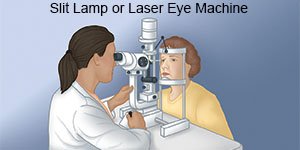Idiopathic Intracranial Hypertension
Medically reviewed by Drugs.com. Last updated on Aug 4, 2025.
IIH is a condition that causes the pressure inside your skull to be higher than normal for no known reason. IIH can seem like a brain tumor, but no tumor is found.
WHILE YOU ARE HERE:
Informed consent
is a legal document that explains the tests, treatments, or procedures that you may need. Informed consent means you understand what will be done and can make decisions about what you want. You give your permission when you sign the consent form. You can have someone sign this form for you if you are not able to sign it. You have the right to understand your medical care in words you know. Before you sign the consent form, understand the risks and benefits of what will be done. Make sure all your questions are answered.
Medicines:
- Migraine medicine may help decrease how much CSF you produce. This will help relieve pressure in your skull.
- NSAIDs decrease swelling, pain, and fever.
- Acetaminophen decreases pain.
- Diuretics help decrease extra fluid that collects in your body. This will help lower the pressure in your skull. Diuretics are often called water pills. You may urinate more often when you take this medicine.
- Pain medicine may be given. Do not wait until the pain is severe before you ask for more medicine.
Related medications
Tests:
- An eye exam is used to check for vision problems that may be a sign of IIH. Your healthcare provider will check your vision and examine your eyes. Your provider may dilate the pupil and use a microscope with a strong light to look into your eyes. A dye may be used to help blood vessels in your eyes show up better in pictures.

- A neurological exam is used to check how your pupils react to light. Healthcare providers may check your memory, your hand grasp, and your balance.
- CT or MRI pictures of your head may show fluid buildup and other problems. You may be given contrast liquid to help problems show up better in the pictures. Tell the healthcare provider if you have ever had an allergic reaction to contrast liquid. Do not enter the MRI room with anything metal. The MRI machine uses a powerful magnet. Metal can cause serious injury from the magnet. Tell the healthcare provider if you have any metal in or on your body.
- A lumbar puncture is a procedure to check the pressure inside your skull. A needle is inserted in your back and into the spinal canal. CSF may be collected and sent to a lab for tests. Healthcare providers may also drain CSF to relieve pressure and ease your headache.

Treatment:
- Optic nerve sheath surgery allows extra CSF to drain and relieve eye pressure. A small opening is made in the sheath (cover) around the optic nerve.
- A spinal fluid shunt (passageway) may be placed your brain or spinal cord to drain extra CSF into another area of the body. This helps relieve pressure in your skull.

Treatment options
The following list of medications are related to or used in the treatment of this condition.
RISKS:
Even with treatment, your symptoms may return. Without treatment, the pressure in your skull may continue to increase. This can cause severe headaches. Your vision may get worse and you may go blind.
CARE AGREEMENT:
You have the right to help plan your care. Learn about your health condition and how it may be treated. Discuss treatment options with your healthcare providers to decide what care you want to receive. You always have the right to refuse treatment.© Copyright Merative 2025 Information is for End User's use only and may not be sold, redistributed or otherwise used for commercial purposes.
The above information is an educational aid only. It is not intended as medical advice for individual conditions or treatments. Talk to your doctor, nurse or pharmacist before following any medical regimen to see if it is safe and effective for you.
Learn more about Idiopathic Intracranial Hypertension
Treatment options
Care guides
Medicine.com guides (external)
Further information
Always consult your healthcare provider to ensure the information displayed on this page applies to your personal circumstances.
